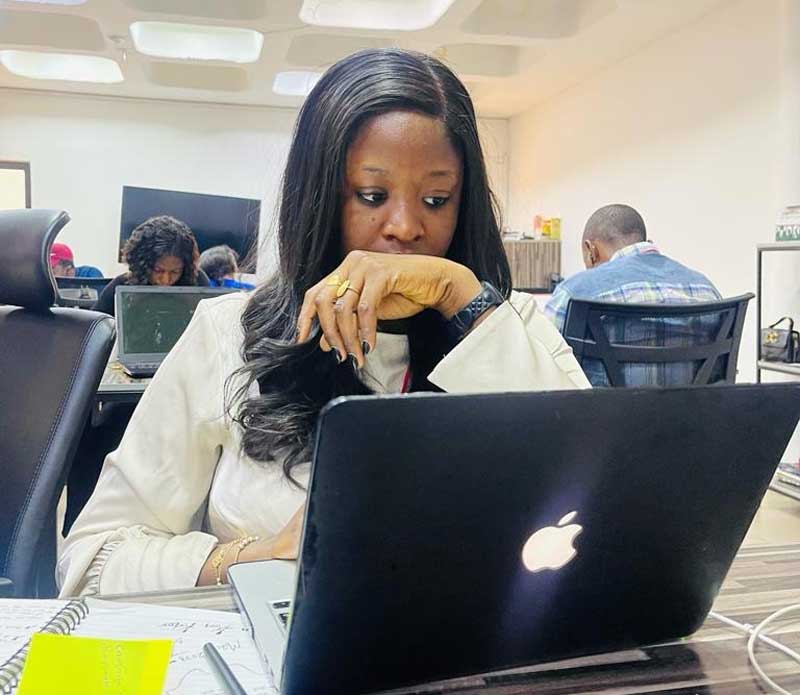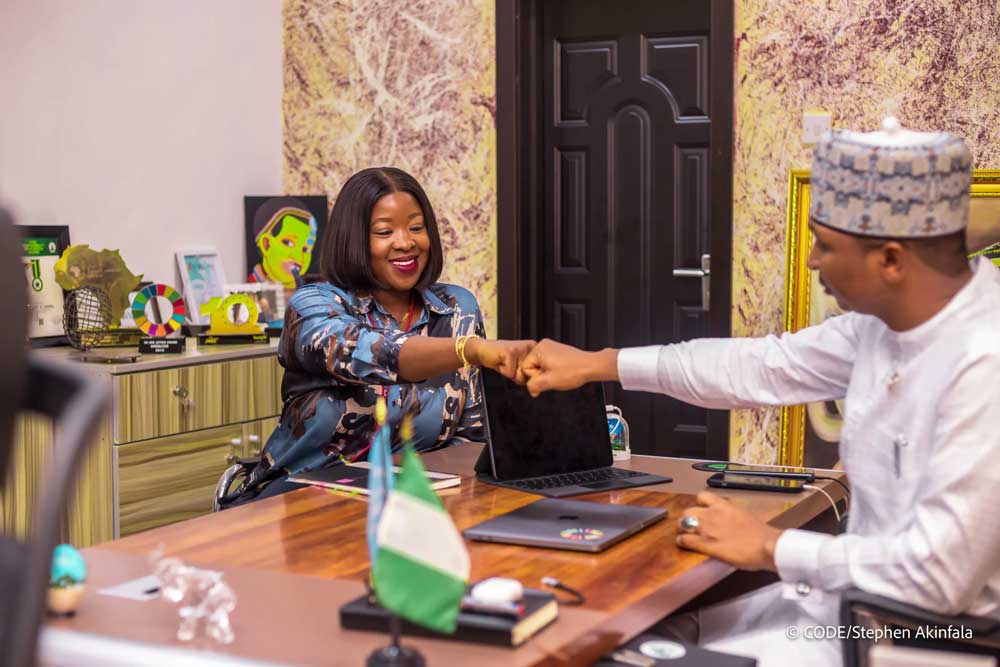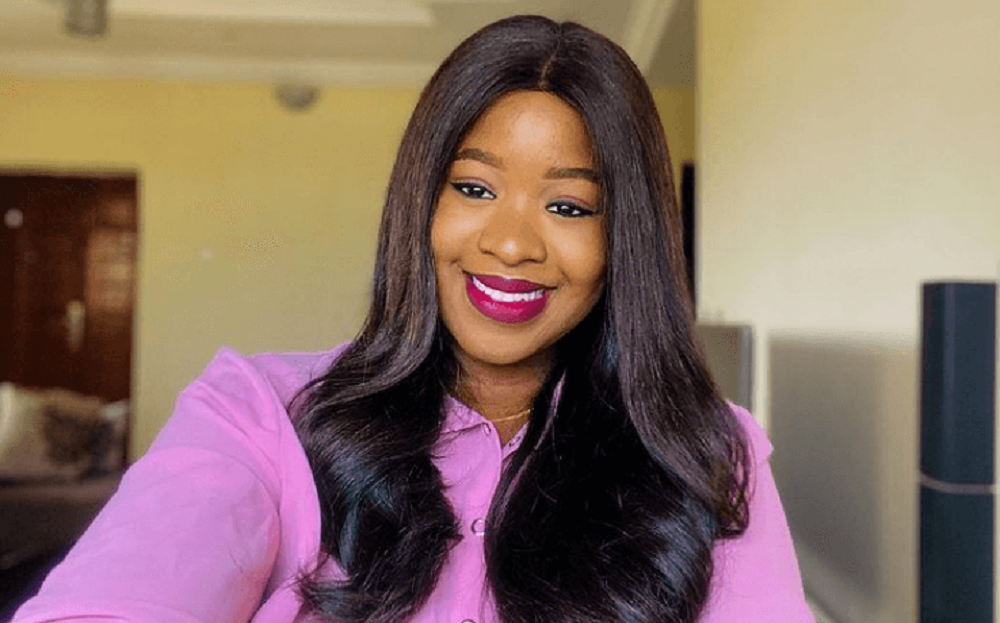Nigeria’s Hyeladzira Mshelia Builds Digital Toolkit To Boost Gender Advocacy In Africa
A Programmes Associate at Connected Development (CODE), Hyeladzira Mshelia, has reeled out her plans to build a digital toolkit to assist gender advocates with helpful guidelines and procedures to effectively assist victims of gender violence in their communities.
The toolkit will form part of Mshelia’s project during a two-month Twink Frey fellowship that she was recently selected for at Michigan University.
Advertisement
Mshelia told THE WHISTLER in an interview that she will be working on a coherent framework and digital platform to mobilize and empower 500 Gender Advocates (GA) across Africa.

Her years of experience has helped her understand that while the capacities of women and girls in Nigeria are being developed, gender advocates still lacked a consultative approach on a unified platform.
It is against this backdrop that she plans to build the toolkit as a collaborative platform to bring together gender advocates and survivors of gender violence.
Advertisement
Mshelia said with the toolkit, “you don’t have to go through a school to become a gender advocate because the digital toolkit will consist of guidelines and procedures to effectively advocate for your immediate community, people around you, your family members, or whatever the case.

“So, this toolkit I’m going to work on is going to be embedded in a lounge (an app). I call it a lounge because it’s going to be a collaborative tool that brings together gender advocates and survivors of gender violence as well. So, on that app, you will have different resources that can be used to effectively advocate and one of the resources will be a hypothetical toolkit, helplines consisting of police officials, therapists, and counselors in the case of emergencies.”
Asked if she plans to help address the sometimes casual attitude of police officers to cases of rape and gender violence, Mshelia said the project will also focus on “sensitizing the police, building their capacities through campaigns to effectively identify and horridly provide help when needed.
“To be sincere it’s not only about the police but a lot of people also have a very weird mentality when it comes to cases of rape or abuse, you often see people attacking the victims asking what are wearing? Why were you dressed half-naked?
Advertisement
“This is a conversation that we will continue having, change will not happen immediately but we are in the process of sensitizing them, building their capacities through some of the campaigns that we’re doing you know, for them to be able to effectively identify and horridly provide help when needed.”

Mshelia hopes that with the resources and network available to her at Michigan University, she will be able to contribute to the actualization of societies where helpless women and girls in Internally Displace Persons (IPDs) camps who are survivors of physical, emotional, and psychological abuse, get justice and quality development.
“I know with the opportunity to work with researchers, other social activists, Ph.D. students, and legislators working around gender equity in America, I will be able to tap from the resources in the wealth of knowledge to come up with a hypothetical toolkit that is going to help all gender advocates across the world advocate for policies that are tailored towards achieving gender equality,” she added.



